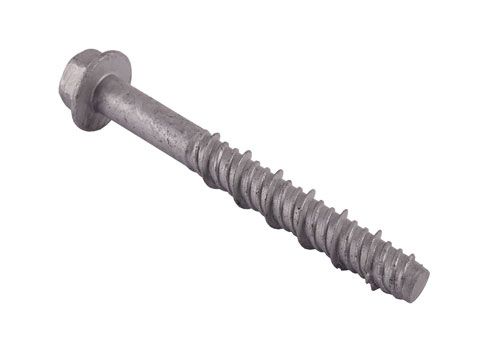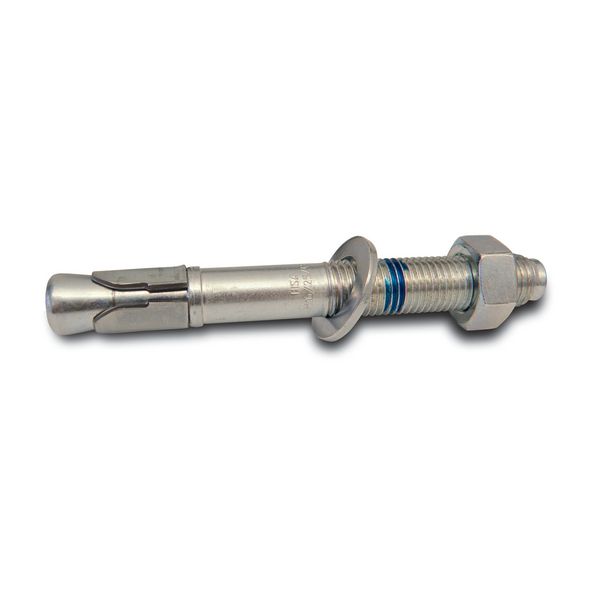-

Fixing Bolts
£11.69Supplied in: Pack of 4 -

Surface Mounting Fixing Bolts
From £6.79 To £14.99Supplied in: Pack of 4 -

Floor Anchors
From £11.99 To £24.99Supplied in: Set of 8 -

Hoop Guards - Concrete Screws
£12.69Supplied in: Pack of 4 -

Steel Hoop Guards - Wall Socket
£52.99Supplied in: Single -

Through Bolt Anchors
£7.49Supplied in: Single -

Impact Protection Feet - Fixings & Adhesive - Pack of 8
£49.99Supplied in: Pack of 8
Guard Rail Fixing Accessories
Need help?
 What Bolts Are Best for Fixing Into Concrete?
Get Guard Rail Fittings and Floor Anchors Fast
What Bolts Are Best for Fixing Into Concrete?
Get Guard Rail Fittings and Floor Anchors Fast
When fitting guard rails and barriers, it is essential to ensure they are fitted securely to maximise their benefits. Seton provides a full range of guard rail fixing accessories to ensure your safety rails, barriers and hoops are safely and securely fitted, no matter where you intend to install.

Expert Information
Guard railing, sometimes known as a guard rail or a handrail, prevents people or vehicles from plunging from a structure such as a bridge or a flight of stairs. It might be a shared railing for both, a stronger guard for automobiles, or a handrail for people. Guard rails are used on roadways to reduce the severity of collisions and make them safer. The guardrail can divert a car back into the carriageway, slow it down until it comes to a halt, or, under certain conditions, slow it down before letting it pass the guardrail.
At Seton, we supply the best guard rail fittings, suitable for implementation across the UK. Our comprehensive range includes precision manufactured products of the type and size of guard rail fittings to suit most applications. Order HSE and BS-Certified Guard Rails and strong, secure fixing accessories today with fast, fuss-free delivery.
Guard & Safety Rail Fixings – Buying Guide
Selecting the right kind of guardrail and handrail fittings can be tricky and time-consuming. Therefore, having a buying guide can help you decide what kind of fixings are required to fulfil your needs. Please go through the following steps to assess your requirements for buying the best and most appropriate guard and safety rail fixing for your project:1. Identify the requirement: Do you need to fix a handrail or guardrail?
2. Focus on the material: Find out what material you will use to fix the guard rail or the handrail. This is very important because different kinds of fittings are used for different materials. For example, through bolts are used for carpentry work, while guard rails or handrails can be fixed onto a cemented base.
3. Pay attention to the size and quality of the fixings: As all fittings come in different sizes and qualities, it is important to find the correct size of floor anchor bolts, concrete screws, through bolts, anchor bolts for concrete and concrete fixing bolts you need. Also, these fittings are not frequently changed and are usually made to last for a long time. Therefore, it is crucial to select fittings that are made from high-quality and rust-resistant metals.
What Are Through Bolts For?
Through bolts are the best choice for through-fix installations with medium to heavy weights in cracked or uncracked concrete. They work well for installing difficult fittings without the necessity for marking off, removing and relocating them.Is a Through Bolt the Same as an Anchor Bolt?
Anchor bolts are most commonly used to fasten things or buildings to concrete using concrete screws. Before the concrete dries, anchor bolts for concrete are often inserted into the liquid substance, which keeps them in place while the concrete solidifies. Where anchor bolts are installed from only one side of the fixing; in contrast, through bolts require access to both sides of the fixing material however they are more easily removed and re-used.Can Through Bolts Be Used in Brickwork?
As through bolts are most frequently employed for medium load applications, they are not usually an appropriate option for brickwork or blockwork installation surfaces.What Bolts Are Best for Fixing Into Concrete?
Concrete fixing bolts are the best for use when dealing with concrete material. Bolts made specifically for concrete (i.e., concrete fixing bolts) can be installed straight into brickwork, stone or cement/concrete. The fact that masonry screws are anti-corrosive makes them durable and tarnish-resistant, thus rendering them ideal for household and commercial applications.How Deep Should Concrete Screws Go?
The depth at which concrete screws are normally drilled is typically 1/4 inch deeper than the total length of the screw. To prevent the head of your screw from being sheared off, you shouldn’t bore your pilot hole deeper than 3/4 inches. The screw should, however, be hammered at least one inch deep to provide a strong fastening.What Are the Best Anchors for Concrete Floors?
Objects can be fastened to concrete surfaces using floor anchor bolts when they are inserted into the hole bored in the concrete. Anchors are usually made of strong and durable metallic materials. They secure an item with a concrete base and can be widened or tightened as needed.Both wedge and sleeve anchors are among the best floor anchors. Sleeve and wedge anchors are two top-notch concrete anchors that can support up to a tonne of weight. They offer impressive pull-out and shear force resistance. Wedge concrete anchors are frequently employed because they are simple to use, resistant to corrosion, and among the most durable concrete anchors. Sleeve anchors are also durable and corrosion-resistant because they are made of stainless steel.

